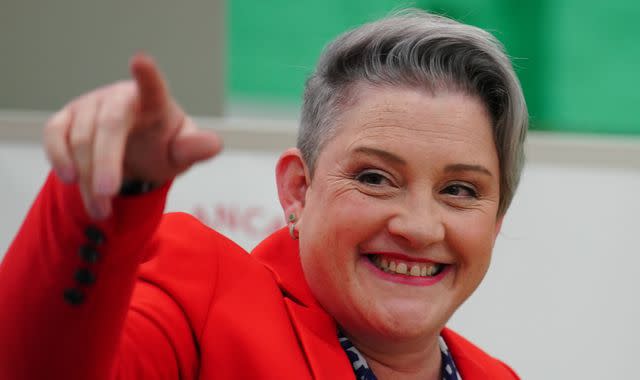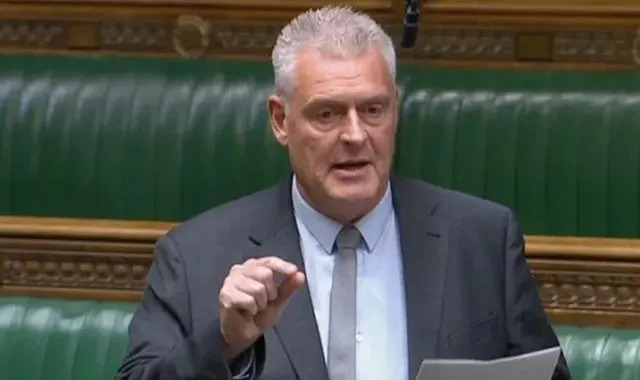Helena Horton Environment reporter
THE GUARDIAN
Wed, 8 February 2023
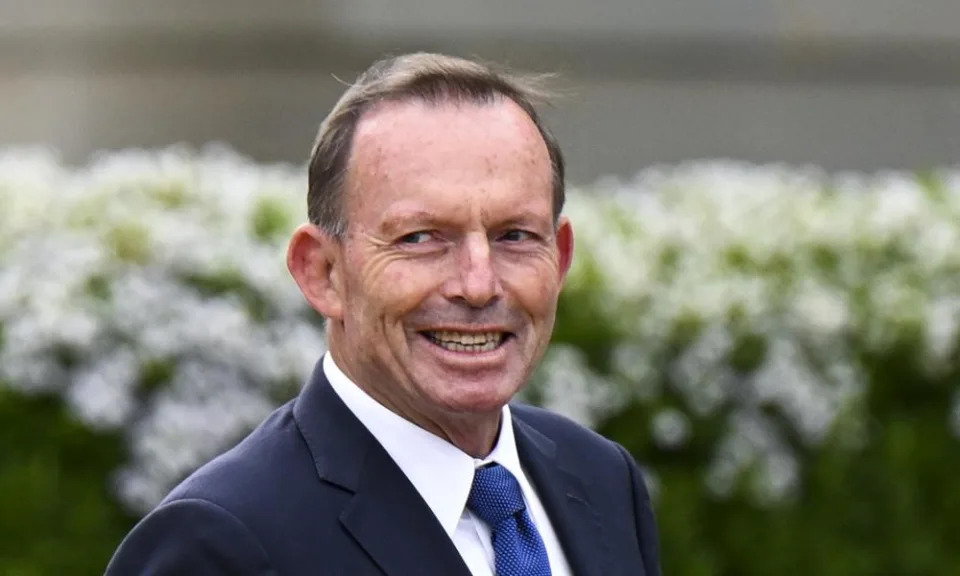
Tony Abbott, former Australian prime minister,
The UK government is being urged to sack one of its trade advisers after he joined a thinktank that has denied the scale of the climate crisis and campaigned against net zero.
Tony Abbott, a former Australian prime minister, announced this week that he had joined the Global Warming Policy Foundation (GWPF).
Abbott has been a member of the UK government’s Board of Trade since 2020, advising on post-Brexit deals, with Australia now a key trading partner since the UK left the EU.
But sources at the Department for Business and Trade said Abbott would not be dismissed, despite an outcry from parliamentarians and climate campaigners.
The GWPF has produced reviews – at odds with mainstream science – that claim the climate emergency is not happening. Members of the thinktank have shared work suggesting that a rise in carbon dioxide in the atmosphere could be a good thing. Presenting a report last year, the GWPF’s director, Dr Benny Peiser, said: “It’s extraordinary that anyone should think there is a climate crisis.”
Recently, the thinktank started Net Zero Watch, a campaigning platform highlighting what it calls the “costs of net zero”. GWPF is being looked into by the Charity Commission after claims from MPs and lawyers that it does not meet its aims as a charity and is a lobbying organisation.
The Guardian understands that one of the thinktank’s previous leading members, the Tory MP Steve Baker, was advised to give up his position on the board of trustees before being appointed a junior minister in the Northern Ireland Office last year.
Campaigners have called for Abbott to be sacked as a trade adviser. Mel Evans, of Greenpeace UK, said: “Talking tough on climate action while filling your Board of Trade with people like Abbott is a dismal signal to the world about Britain’s climate leadership. Tony Abbott is free to continue his journey into unreality, but the government shouldn’t allow us to be dragged along behind him.”
There are fears that having someone who is sceptical about reaching net zero on the Board of Trade could affect the UK’s trade deals. Shaun Spiers, the executive director of Green Alliance, said: “Ninety per cent of the world’s GDP is generated in countries that are committed to net zero. That brings lots of trading opportunities for progressive UK businesses, who will be looking to the new Department for Business and Trade for support. Meanwhile, one of its key advisers is trying to undermine support for climate action. It’s not a good look.”
The Board of Trade is headed by the trade secretary, Kemi Badenoch, who has also previously questioned net zero.
The Green MP, Caroline Lucas, said: “In May last year, the government claimed it was ‘leading the way on green trade’. How time flies, now that nine months later the trade department has a secretary of state who rejects net zero, and an adviser who openly supports climate denial. Our climate leadership on the world stage takes yet another pounding.
“Fundamentally, all trade agreements must meet the UK’s own climate and biodiversity targets; be aligned with Paris agreement targets to limit global temperature increase to 1.5 degrees; and deliver the sustainable development goals. If government figures can’t, or won’t, deliver those objectives, they should not be in post.”
The Liberal Democrat climate change spokesperson, Wera Hobhouse, said: “For Rishi Sunak to allow Tony Abbott to continue on the government’s Board of Trade tells you everything you need to know about his prioritisation of the climate crisis.
A government spokesperson said: “The Board of Trade is an advisory panel who serve in personal capacities, do not speak on behalf of government and do not set government policy.”
A spokesperson for the GWPF said: “Taking climate change seriously is about making sure the costs and benefits of climate policies are properly weighed up. Tony Abbott is sensitive to this concern, which is why he has joined our eminent board of trustees.”
The Guardian approached Tony Abbott for comment.
Wed, 8 February 2023

Tony Abbott, former Australian prime minister,
The UK government is being urged to sack one of its trade advisers after he joined a thinktank that has denied the scale of the climate crisis and campaigned against net zero.
Tony Abbott, a former Australian prime minister, announced this week that he had joined the Global Warming Policy Foundation (GWPF).
Abbott has been a member of the UK government’s Board of Trade since 2020, advising on post-Brexit deals, with Australia now a key trading partner since the UK left the EU.
But sources at the Department for Business and Trade said Abbott would not be dismissed, despite an outcry from parliamentarians and climate campaigners.
The GWPF has produced reviews – at odds with mainstream science – that claim the climate emergency is not happening. Members of the thinktank have shared work suggesting that a rise in carbon dioxide in the atmosphere could be a good thing. Presenting a report last year, the GWPF’s director, Dr Benny Peiser, said: “It’s extraordinary that anyone should think there is a climate crisis.”
Recently, the thinktank started Net Zero Watch, a campaigning platform highlighting what it calls the “costs of net zero”. GWPF is being looked into by the Charity Commission after claims from MPs and lawyers that it does not meet its aims as a charity and is a lobbying organisation.
The Guardian understands that one of the thinktank’s previous leading members, the Tory MP Steve Baker, was advised to give up his position on the board of trustees before being appointed a junior minister in the Northern Ireland Office last year.
Campaigners have called for Abbott to be sacked as a trade adviser. Mel Evans, of Greenpeace UK, said: “Talking tough on climate action while filling your Board of Trade with people like Abbott is a dismal signal to the world about Britain’s climate leadership. Tony Abbott is free to continue his journey into unreality, but the government shouldn’t allow us to be dragged along behind him.”
There are fears that having someone who is sceptical about reaching net zero on the Board of Trade could affect the UK’s trade deals. Shaun Spiers, the executive director of Green Alliance, said: “Ninety per cent of the world’s GDP is generated in countries that are committed to net zero. That brings lots of trading opportunities for progressive UK businesses, who will be looking to the new Department for Business and Trade for support. Meanwhile, one of its key advisers is trying to undermine support for climate action. It’s not a good look.”
The Board of Trade is headed by the trade secretary, Kemi Badenoch, who has also previously questioned net zero.
The Green MP, Caroline Lucas, said: “In May last year, the government claimed it was ‘leading the way on green trade’. How time flies, now that nine months later the trade department has a secretary of state who rejects net zero, and an adviser who openly supports climate denial. Our climate leadership on the world stage takes yet another pounding.
“Fundamentally, all trade agreements must meet the UK’s own climate and biodiversity targets; be aligned with Paris agreement targets to limit global temperature increase to 1.5 degrees; and deliver the sustainable development goals. If government figures can’t, or won’t, deliver those objectives, they should not be in post.”
The Liberal Democrat climate change spokesperson, Wera Hobhouse, said: “For Rishi Sunak to allow Tony Abbott to continue on the government’s Board of Trade tells you everything you need to know about his prioritisation of the climate crisis.
A government spokesperson said: “The Board of Trade is an advisory panel who serve in personal capacities, do not speak on behalf of government and do not set government policy.”
A spokesperson for the GWPF said: “Taking climate change seriously is about making sure the costs and benefits of climate policies are properly weighed up. Tony Abbott is sensitive to this concern, which is why he has joined our eminent board of trustees.”
The Guardian approached Tony Abbott for comment.
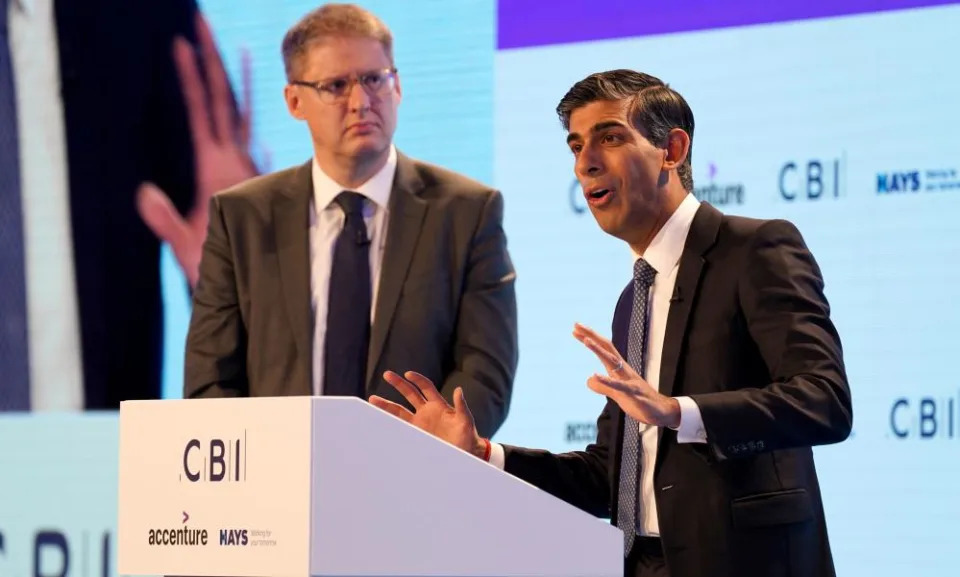
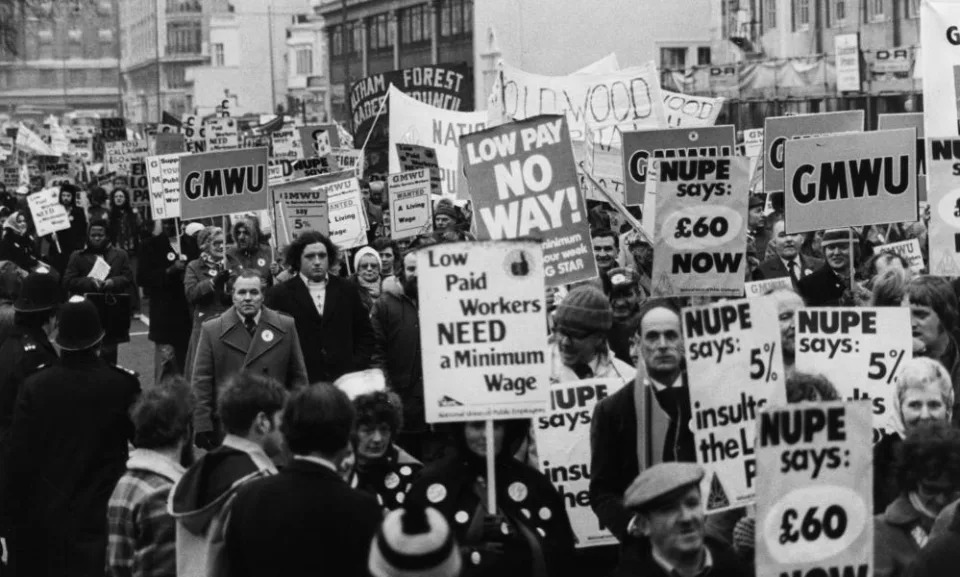
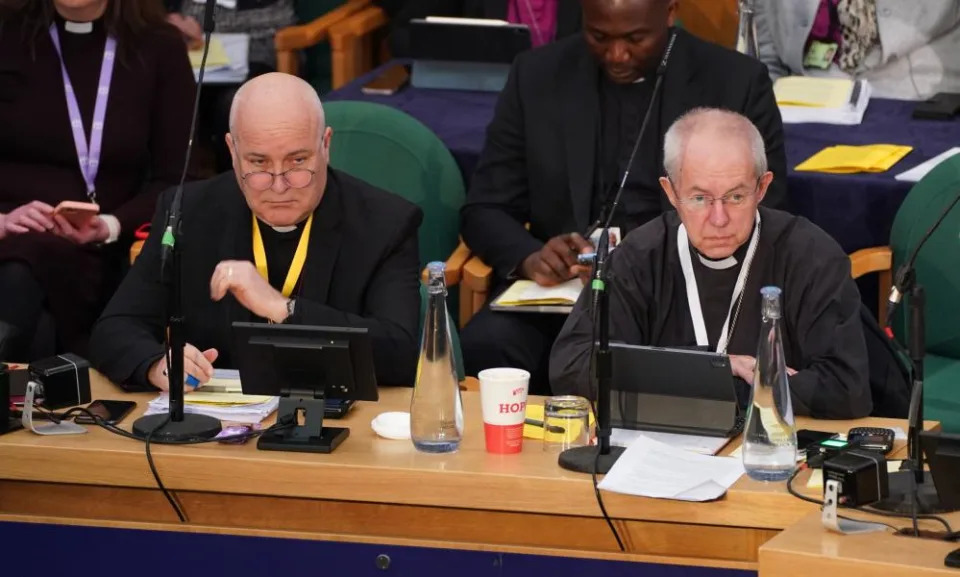
.jpg)







